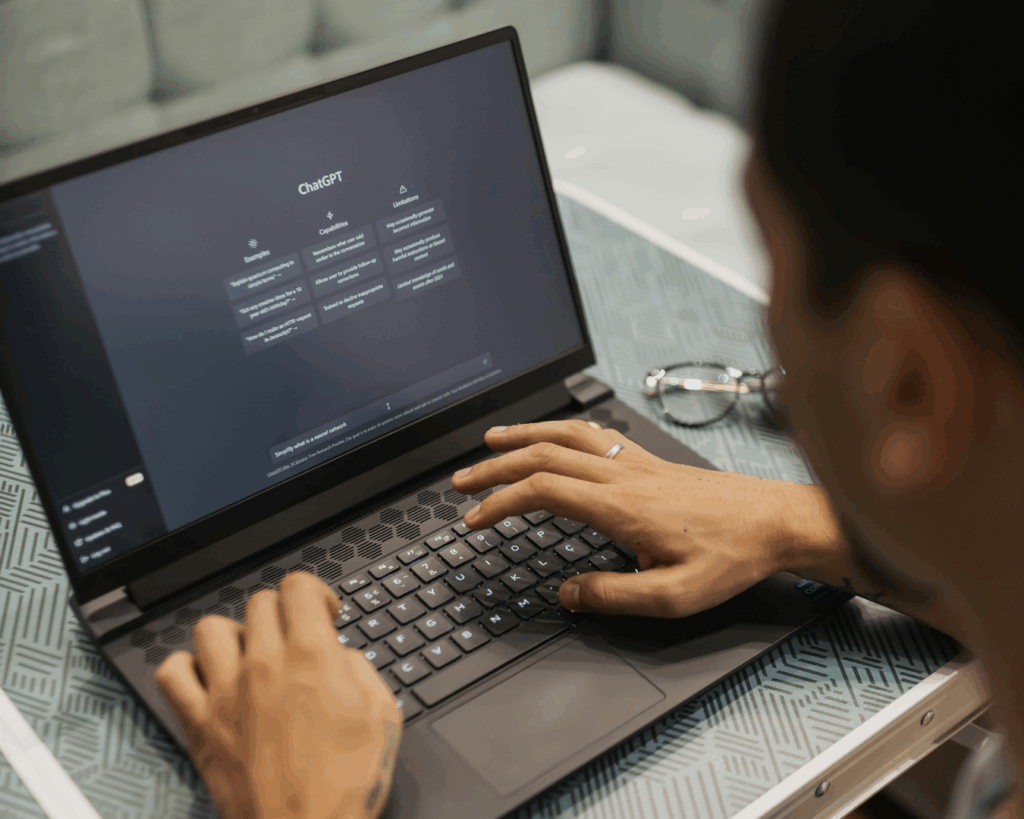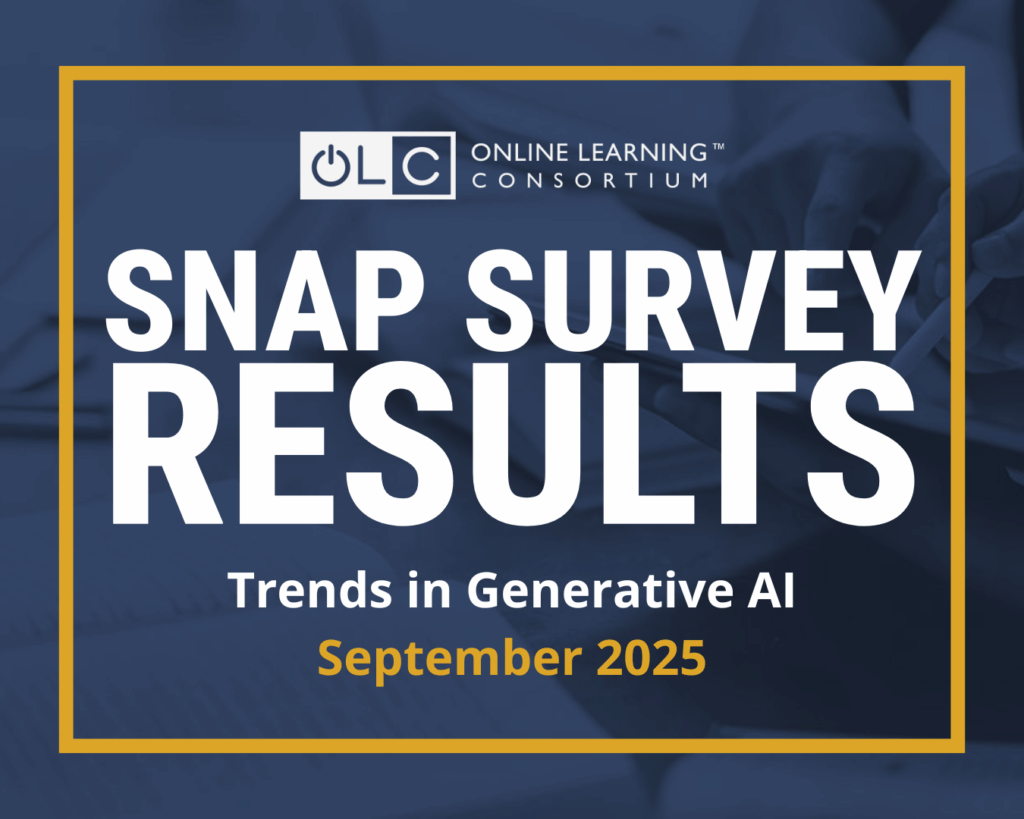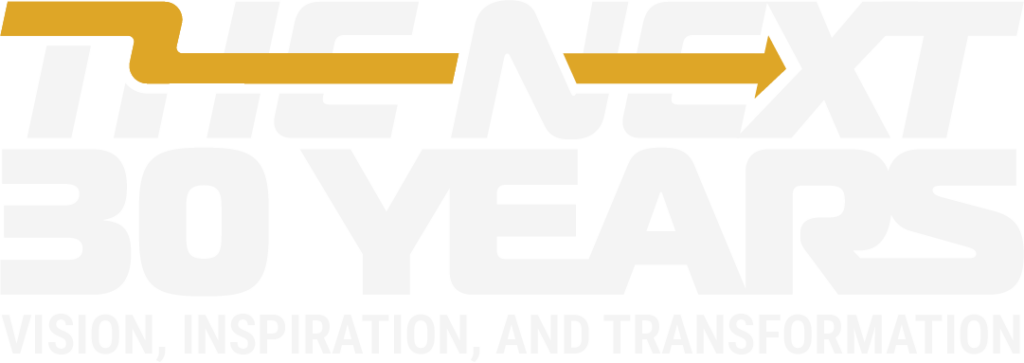Welcome to the OLC’s “Volunteer Spotlight” series, where we highlight the valuable contributions of just some of the many OLC volunteers who dedicate their time and expertise serving the community. This month, we’re excited to spotlight Florence Williams, a dedicated and passionate online and digital education advocate. I had the pleasure of interviewing Flo to learn more about her journey, her involvement with OLC, and the impact of her volunteer work.
A Journey Rooted in Passion for Education
Flo Williams has over two decades of experience in faculty development training, curriculum development, and program management. Currently an Instructional Designer at the University of Central Florida, Flo’s professional journey has been guided by her passion for equity in cultural engagement, online learning excellence, and emerging technology. Before her role at UCF, Flo held supervisory roles in higher education, building a rich background in education and leadership.
Embracing the OLC Community
Flo first became involved with the OLC in 2014 when she attended the OLC Accelerate conference in Orlando. Reflecting on her experience, she shared, “The experience was transformative and inspired me to become more actively engaged with the community. I loved the community callouts and engagement opportunities offered during the keynote and plenary sessions. I felt that these were my people.” Since then, Flo has taken on various volunteer roles, including program and engagement committee co-chair, session chair, presenter mentor, and Technology Test Kitchen co-chair. Each role has deepened her connection to the OLC and to the online and digital learning community.
Making an Impact through Volunteering
Volunteering with the OLC has had a profound impact on Flo’s life, both personally and professionally. She shared, “Volunteering has expanded my network, enhanced my skills, and opened up new opportunities for collaboration and growth.” Notable experiences include participating in the Advanced Online Certificate program, the Institute for Emerging Leaders in Online Learning (IELOL) Global, and numerous webinars and workshops. [Learn more about OLC’s learning opportunities through the Center for Professional Development.]
Through her work, Flo has also made a lasting impact on others. One of her most memorable moments was receiving a heartfelt thank-you letter from a mentee whose confidence blossomed during their collaboration. “This moment was a testament to the lives touched through volunteerism at the OLC, including mine,” she said.
Rewards and Challenges
For Flo, the most rewarding aspect of volunteering is seeing the impact of her work on the community, particularly through innovative engagement activities. However, balancing time commitments can be challenging. “OLC makes this easier by pre-setting dates for volunteer activities and sending reminders to keep everyone on track,” Flo noted. She credited fellow volunteers Cody H. and Jenn Z. with helping her navigate early challenges and ensuring successful collaboration.
Memorable Moments and Future Goals
In addition to her mentee story, Flo treasures the connections she’s built through the OLC community. Looking ahead, she aims to advance her career by mentoring new instructional designers, contributing to the online learning community, and one day chairing an OLC conference. She emphasized, “Volunteering with the OLC has been instrumental in helping me achieve these goals by enhancing my leadership and communication skills.”
What Sets the OLC Apart
“What sets the OLC apart is its community, resources, support, and innovation,” Flo shared. She highlighted the organization’s commitment to inclusion, particularly during the COVID-19 pandemic when events transitioned online without compromising quality. “The OLC’s thoughtfulness and dedication to its members are truly remarkable,” she added.
A Call to Future Volunteers
To anyone considering volunteering with the OLC, Flo offered this advice: “Don’t delay. There is a community out there that will allow your unique skills to shine. Join the volunteers and make your mark on the world of online learning while becoming a leader in your field.”
Gratitude and Recognition
Flo concluded with heartfelt gratitude for the OLC leadership and staff. “Thank you for recognizing the worth of each community project and collaborator. Being part of this community has been an incredible journey, and I look forward to continuing to contribute and grow together.”
Flo Williams’ story is a shining example of the transformative power of volunteerism within the OLC community. Her passion and dedication inspire us all, and we are deeply grateful for her contributions.
If you are interested in connecting with like-minded professionals and gaining professional development through volunteering for the OLC, we invite you to apply! We frequently have new opportunities and will reach out when there is a match to your indicated interests.






